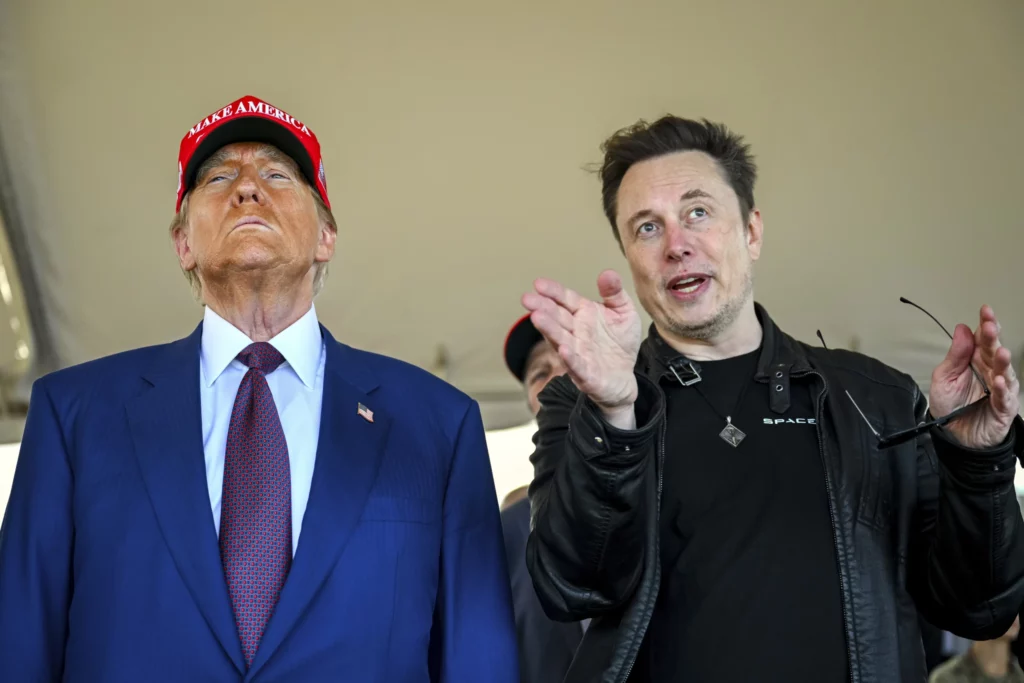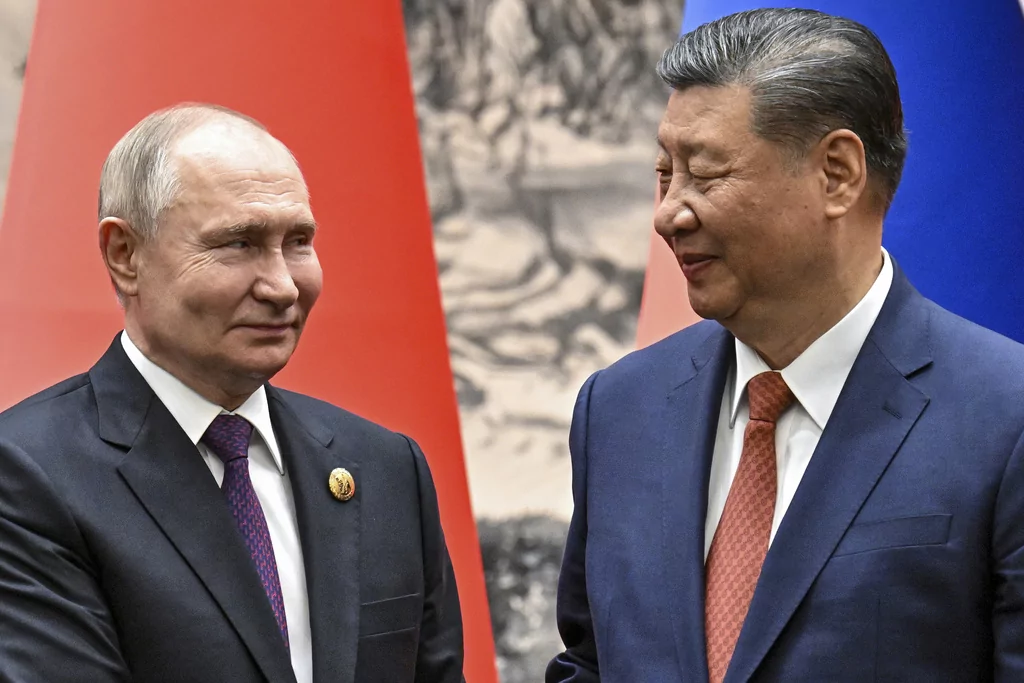
The Trump administration’s freeze on foreign aid could provide China with an opening to expand its global sphere of influence, some policy experts representing anticorruption, national defense, and conservative organizations told the Washington Examiner. Others, however, agree with the president’s position that waste is a problem in U.S. foreign aid worth addressing with cuts.
On his first day in office, President Donald Trump issued a 90-day freeze on all foreign aid disbursements, but a federal judge based in Washington ordered Trump last week to lift his spending halt temporarily pending review. However, with many USAID employees having been fired and many programs already having been shuttered, the flow of funds has dramatically slowed. And China stands ready to pounce, experts told the Washington Examiner.
“The abrupt cancellation of U.S. foreign assistance creates an opportunity for China to move in and pick up the tab, further increasing its influence over governments that are often already heavily indebted to Beijing,” Hudson Institute fellow Nate Sibley, who leads to organization’s Kleptocracy Initiative, told the Washington Examiner. “This, in turn, means China will be able to count on those governments for support against the U.S. in the international arena and have better access to economic opportunities like supply chain development and critical minerals extraction.”
Sibley pointed to multiple instances of the Chinese Communist Party mobilizing to fill gaps left by the U.S. foreign aid freeze. In the days following the halt on aid spending, China has moved to fund landmine clearance operations in Cambodia, offered the government of Nepal development assistance, and attempted to build influence in America’s backyard by offering nongovernmental organizations in Colombia money to replace canceled U.S. funding.
“These are just the reported examples, but we can safely assume that Chinese officials have been energetically working the telephones with every country they can since USAID was shuttered,” Sibley continued.
Though the Trump administration has taken an aggressive stance against China, Elon Musk, the man behind the Department of Government Efficiency and an ardent supporter of the foreign aid freeze, has significant business ties to China.
China represented 36.7% of Tesla’s car sales in 2024, and the electric vehicle company works with CATL, which the Defense Department recently designated as a “Chinese military company,” to procure batteries. Tencent, another Chinese military company that disputes the label, reportedly owned a stake in Tesla as of 2023. Musk has even described himself as “kind of pro-China.” Under Musk’s direction, DOGE has targeted other tools the United States uses to counter CCP influence, such as the National Endowment for Democracy.
Critics have taken aim at Musk’s Chinese business interests as they argue the billionaire technology mogul should not be given access and authority at federal agencies.

China has historically used foreign aid to curry favor in developing countries.
“In a U.S. vacuum, our adversaries, especially China, but also Hamas and Hezbollah, use aid payments and humanitarian support to build allegiance in fragile and war-torn areas to the detriment of U.S. interests,” Elaine Dezenski, senior director and head of the Center on Economic and Financial Power at the Foundation for Defense of Democracies, told the Washington Examiner.
Before Trump took office, China was already significantly outpacing the U.S. in foreign aid spending.
An October 2024 Government Accountability Office report found that the combined forces of the Commerce Department, Export-Import Bank, State Department, International Development Finance Corporation, Millennium Challenge Corporation, U.S. Trade and Development Agency, and USAID spent about $76 billion on foreign infrastructure projects between 2013 and 2021. China, meanwhile, spent roughly $679 billion during the same period on such projects.
“The Chinese Communist Party doesn’t primarily use development loans to develop Global South economies,” Hudson Institute senior fellow Michael Sobolik previously told the Washington Examiner. “It leverages them to export authoritarianism and create economic dependency on Beijing.”
Some American lawmakers, policy experts, and the GAO have echoed Sobolik’s concern that the CCP uses its foreign aid apparatus to expand its global influence.

While China’s high level of foreign spending has raised concerns, some have pointed out that the U.S. does not need to spend that much money to advance its interests abroad in a meaningful way.
“When it comes to countering Chinese influence and geopolitical ambitions, U.S. foreign assistance that goes toward improving a foreign country’s transparency, accountability, or governance actually has some of the highest ROIs, dollar for dollar, of any type of assistance,” Scott Greytak, advocacy director at Transparency International U.S., told the Washington Examiner. “This is because those dollars aren’t simply in competition with money from China or another country for influence. Rather, they often fund initiatives and reforms that reveal improper influence and corruption by America’s adversaries. Opaque contracting and bribery, for example, are the primary means through which programs like China’s Belt and Road Initiative win contracts and other opportunities.”
Greytak cited as examples the Mérida Initiative, where the U.S. partnered with Mexico to purge corrupt police officers and improve transparency, and the Central America Regional Security Initiative, which provided Central American law enforcement agencies with helicopters and other equipment to combat drug traffickers. In both cases, according to Greytak, relatively small sums of American aid “impacted China’s influence in the manufacturing and facilitation of the drug epidemic that is eventually carried out by Latin American gangs.”
While Trump’s actions have led to a bipartisan acknowledgment that wasteful spending and ideological goals have crept into foreign aid agencies, lawmakers and analysts remain split on whether the president’s deep cuts are the right solution.
“It’s a completely unresponsive agency,” Secretary of State Marco Rubio said of USAID on Feb. 3. “It’s supposed to respond to policy directives with the State Department, and it refuses to do so. Every dollar we spend and every program we fund, that program will be aligned with the national interest of the United States. USAID has a history of sort of ignoring that.”
Rubio has argued that USAID fails to cooperate with America’s foreign partners, turning it into a diplomatic liability.
“This is not about getting rid of foreign aid,” Rubio asserted. “There are things we do through USAID that we should continue to do that make sense. And we’ll have to decide: Is that better through the State Department, or is that better through a reformed USAID? That’s the process we’re working through … but they’re completely uncooperative. We had no choice but to take dramatic steps to bring this thing under control.”
Sibley said the Trump administration should freeze all new grants, allowing existing grants to continue while subjecting them to a rigorous review process to terminate “inefficient and ideologically motivated” projects.
“The chaotic way in which this was conducted may ultimately cost U.S. taxpayers more than DOGE has saved, as it is already provoking lawsuits from staff and contractors,” Sibley said. “And if we’re going to complain about waste, up to $500 million in food already paid for by U.S. taxpayers is now rotting in ports and warehouses during a global hunger crisis.”
Greytak, on the other hand, said the administration should review grants to check if they counter the influence of America’s adversaries, combat drug trafficking, promote U.S. access to foreign markets, stop weapons from falling into the hands of bad actors, and ensure that humanitarian aid does not get captured by criminals or militants, such as Hamas.
“There are several issues where aid was sent for reasons that felt politically resonant to one group of voters and not another,” Dezenski told the Washington Examiner. “It is a good and fair question whether foreign aid should be used in that way.”
CLICK HERE TO READ MORE FROM THE WASHINGTON EXAMINER
“However, foreign aid represents tremendous value and has overwhelming potential as a tool of American soft power projection,” Dezenski said. ” … As we seek to expand American power and leadership abroad, we must pair a more muscular policy of ‘sticks,’ an essential task, with more effective and muscular ‘carrots.’ Foreign aid can easily be wasteful, but that doesn’t mean we can’t build better systems to leverage its power more effectively in ways that will create outstanding returns on our investment in fragile regions and in countries where U.S. interests loom large.”
The White House did not respond to a request for comment.







